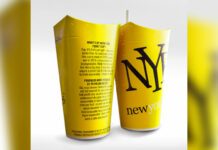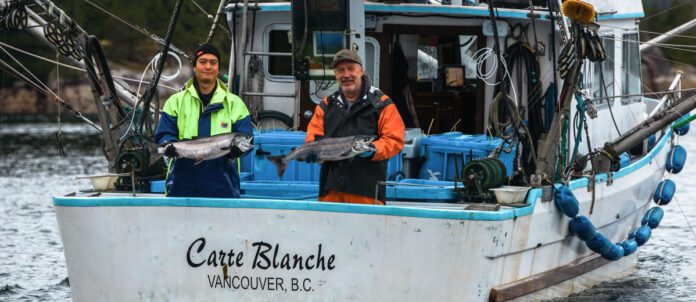Organic Ocean does more than just sell fish. The Richmond, B.C.-based company, founded by fishermen Dane Chauvel and Steve Johansen in 2008, has built a reputation for going above and beyond in terms of quality and eco-conscious practices.
“We’ve been committed to sustainability well before sustainability became mainstream,” says Chauvel, CEO. “In fact, when we established Organic Ocean and shared our vision for sustainable harvest and production, most within our industry met us with mild amusement.”
Organic Ocean revolutionized the seafood supply chain by eliminating intermediaries, including brokers, distributors and wholesalers, spawning the creation of a unique platform for seafood producers.
“[We wanted] to deliver a high-quality product and optimize the value of the resource,” says Chauvel. “We were dealing with a commodity-based industry where all the fish, regardless of how they were harvested and handled, were dumped into the same bin. So, rather than dealing with the [traditional] supply chain, we created our own.”
By using this approach, Organic Ocean has found a direct link between producers and end-users. The company has also partnered with Indigenous fisheries and other like-minded harvesters. These collaborations established a more efficient and effective supply chain, focusing on selling sustainable, high-quality products directly to consumers.
Organic Ocean is committed to promoting sustainability in a world where overfishing and environmental harm are prevalent. It prioritizes transparency by providing traceable and verifiable products, including salmon from the North Pacific and West Coast of Canada, scallops from Japan, fair-trade blue shrimp from Mexico, and Humboldt Squid harvested in Peru.
“All our products are required to be sustainably harvested and produced,” states Chauvel. “Wherever possible, our products must comply with an independent, third-party standard like OceanWise, Seafood Watch, or Marine Stewardship.”
“In terms of traceability, it’s challenging following seafood through the supply chain when you consider how it is being transformed by processing. And when it loses the morphological characteristics (skin, head, tail, fins), it becomes very difficult to distinguish species,” he adds.
The company uses DNA authentication as a reliable way to verify the species and tackle the widespread issue of mislabelling, which is a matter of concern from both consumer and environmental viewpoints.
“When seafood is mislabelled, this almost always involves misrepresenting a lower-value product as a higher-value product. It’s also important to know that the species has been harvested from abundant stocks, which is impossible if it’s not honestly labelled.”
Organic Ocean has entered a partnership with the Hanner Lab in the College of Biological Sciences at the University of Guelph, which has pioneered the use of DNA barcoding technology in which a short, specific section of a particular gene from a sample is sequenced and compared with a library of barcodes from known species.”
It also uses viable packaging materials whenever possible, such as biodegradable, compostable, or recyclable products.
“Through [our partnership] with a start-up from the University of British Columbia, we are developing and evaluating a 100-per-cent bio-based plastic-film replacement using water, seaweed, and wood pulp fibre that is as effective and affordable as traditional plastics but with the added benefit of being completely compostable in soil,” says Chauvel.
Although Chauvel takes great pride in the wide variety of his seafood products, he believes that seaweed, kelp, and cultured shellfish are the products of the future due to their cost-effective production and positive environmental impact.
“[Besides being] very nutritious, shellfish filter the water, and seaweed and kelp help us to sequester carbon dioxide,” he says. “I love creating a range of seaweed and kelp products. We believe that it’s strategically important from an environmental perspective. In addition to all the other things we do, innovating gives us a competitive edge and better serves the market’s needs.”
Organic Ocean has expanded its seafood supply to the home consumer, along with preparation tips shared by the chefs they supply, which aim to create a five-star dining experience at home.
“[The home cook] loved the notion of sourcing the same high-quality seafood that had become the preferred choice of the top chefs, but many were unfamiliar with what to do with it once they got it,” says Chauvel. Working with some of the very best seafood chefs (under the direction of our Chief Culinary Officer Robert Clark), we began creating a line of chef-crafted seafood that would be super easy for any home cook to prepare.”
Chauvel says Organic Ocean’s seafood products have also caught the attention of universities and businesses. “We are growing rapidly, domestically, and globally, and this is enabling us to increase our positive environmental and social impact – that is key to our overall mission.”
By Suzanne Chin-Loy

















